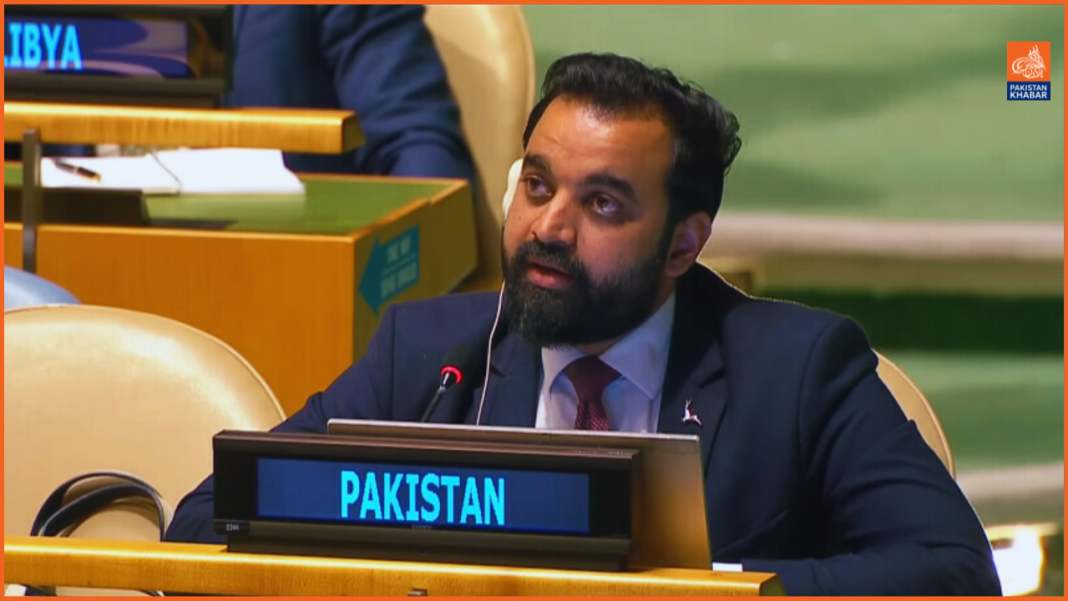UNITED NATIONS: Pakistan has firmly asserted that it has extensive documentation proving India’s involvement in state terrorism, not only in the disputed region of Kashmir but also on a global scale. In a response to Indian External Affairs Minister S. Jaishankar’s allegations of Pakistan promoting terrorism, Pakistani diplomat Muhammad Faheem spoke before the UN General Assembly, highlighting the need for accountability regarding India’s actions.
During his address, Faheem emphasized the irony of India’s stance. He pointed out that while India engages in what he described as severe state terrorism in occupied Jammu and Kashmir, it simultaneously attempts to portray itself as a victim of terrorism. Faheem remarked that this tactic is a common strategy used by occupiers and colonizers, who often label legitimate struggles for freedom as acts of terrorism. He urged India to recognize the significant and indigenous resistance of the Kashmiri people against its control, which India mistakenly categorizes as cross-border terrorism.
Faheem’s comments came after Jaishankar criticized Prime Minister Shehbaz Sharif for raising the Kashmir issue at the General Assembly and accused Pakistan of promoting cross-border terrorism. In a powerful speech on September 28, PM Shehbaz called on both Israel and India to stop their aggressions against innocent civilians, emphasizing the dangers posed by India in its attempts to cross the Line of Control (LoC) and assert control over Azad Kashmir. He warned that Pakistan would respond decisively to any aggression, reinforcing the country’s commitment to defending its sovereignty.
The Pakistani diplomat also urged India to reflect on its actions and comply with Security Council resolutions that advocate for the Kashmiris’ right to self-determination. He highlighted India’s alleged financial support for terrorism directed against Pakistan, including attempts to undermine the China-Pakistan Economic Corridor through proxy groups like the Baloch Liberation Army and the Majeed Brigade.
Moreover, Faheem pointed out India’s recent assassination campaigns against its dissidents abroad, specifically mentioning incidents in Canada and the United States. He criticized Indian leaders for publicly boasting about these actions, further raising concerns about India’s approach to dissent and its impact on international relations.
In conclusion, Pakistan’s assertion serves as a call for global awareness and accountability regarding state-sponsored terrorism and the ongoing struggles for self-determination faced by oppressed populations. The situation in Kashmir remains a focal point in the discourse surrounding regional stability and peace, emphasizing the need for dialogue and resolution based on justice and equity.




